How Do You Export Animation Redshift Maya

Lets assume that you lot have create some magnificent slice of blitheness in Houdini. We accept learned in the rendering and working with cameras tutorial how to save single images of a render. What exercise we do if we have a series of images that we desire to combine in a single video?
Renderers
Even inside Houdini you tin switch the return engine. Examples of other render engines RenderMan, Five-Ray, Octane etc…. Different render engines take different techniques and methods that make things similar hair look different in each engine. Houdini comes with a congenital in return engine called Mantra. It is the default engine we have previously used in the render tab and that we will continue to utilize. As far every bit we are concerned, the free apprentice version only allows the utilize of the Matra render on the CPU which is usually non the best choice merely more than enough for our use. This means that we render slower than with a licensed version.
Return Fix
Showtime of all we need a camera (meet how to gear up one up) in the scene that our renderer will reference.

Then nosotros demand some animation to reference. Here we chose an example with lots of rotations using the frame number $Finside transformations nodes.
And we want to have some quality like this:

Technically nosotros could export each image on its ain and and then utilise an external plan to gum them into ane video but mortal beings should avoid such fourth dimension investments wherever they tin. Instead, we volition prepare the mantra renderer to export the video for us.
You might desire to select how long you animation is supposed to terminal. You can edit such options in the bottom right corner.

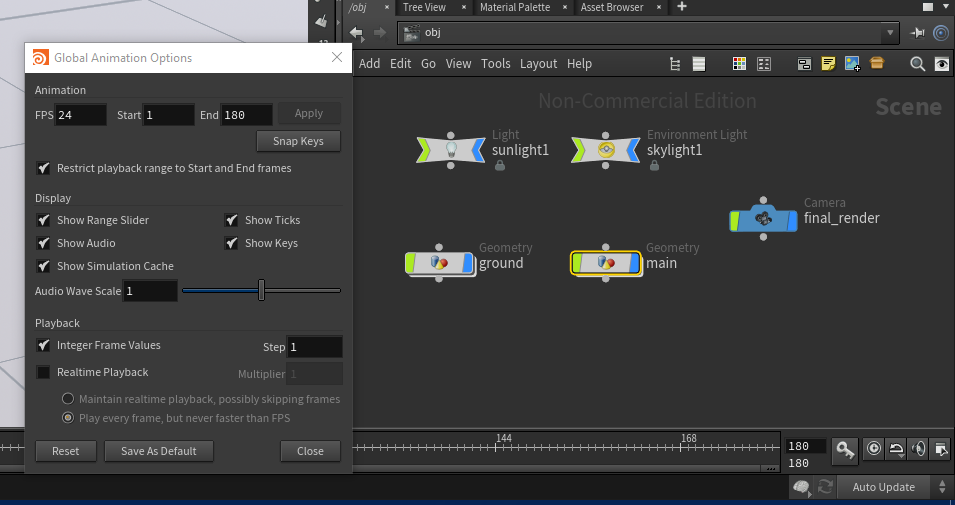
We have to create the mantra renderer node from the top left menu Render > Create Render Node > Mantra.
This however will not create a node in the /objnetwork view as we are used to. The mantra node will be placed in the output network/out.
Rendering
At present you lot tin can edit a meg things in the return node options. All the same, we can view the simple options by clicking on the regal camera at the mantra node. There yous tin edit the frame range (start, end, increment) and lower the resolution drastically to salve more time (I went to 266×200 for this tutorial).
At last you can start rendering. Go to the node option and specify the frame range if necessary and select the camera (If there is just 1 it is selected past default). Next striking theReturn to MPlay at the top of the node parameters or hit Render to Deejay. The 2d one is safer to interruptions.
If you chose the Render to MPlay selection MPlay will automatically launch. If you chose the Return to Deejay option you lot have to run the Houdini image viewer and dive into the working directory/return to open the frames (the .exr file). The epitome Viewer should be located in the install directory of Houdini. The upward side ofrender to deejay is that y'all can interrupt and continue the rendering of long videos.
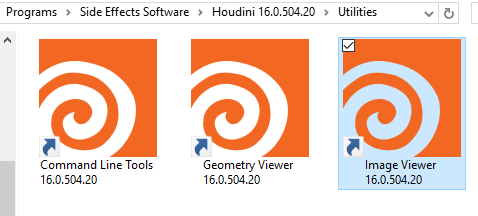
Inside Mplay, go to the top leftFilemenu and select export to video. Specify the location and hitsalve.
And at last nosotros take our final product:
VR and Stereo Return
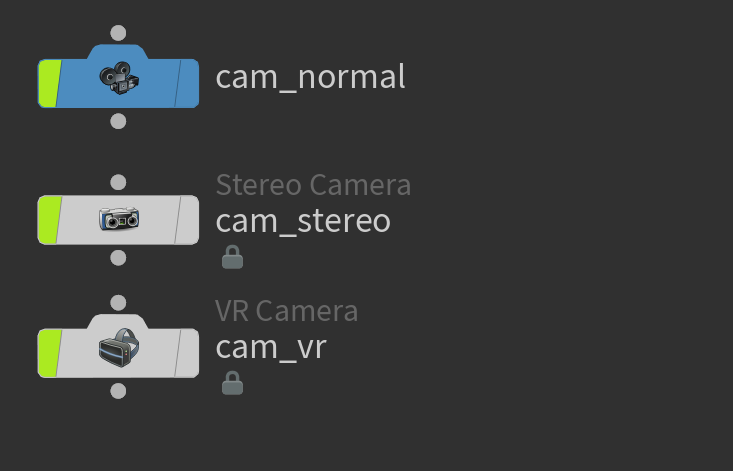
You lot can also render a 3D VR video past merely replacing the photographic camera node with avr camera node. You can follow this handy tutorial video to know what to do.
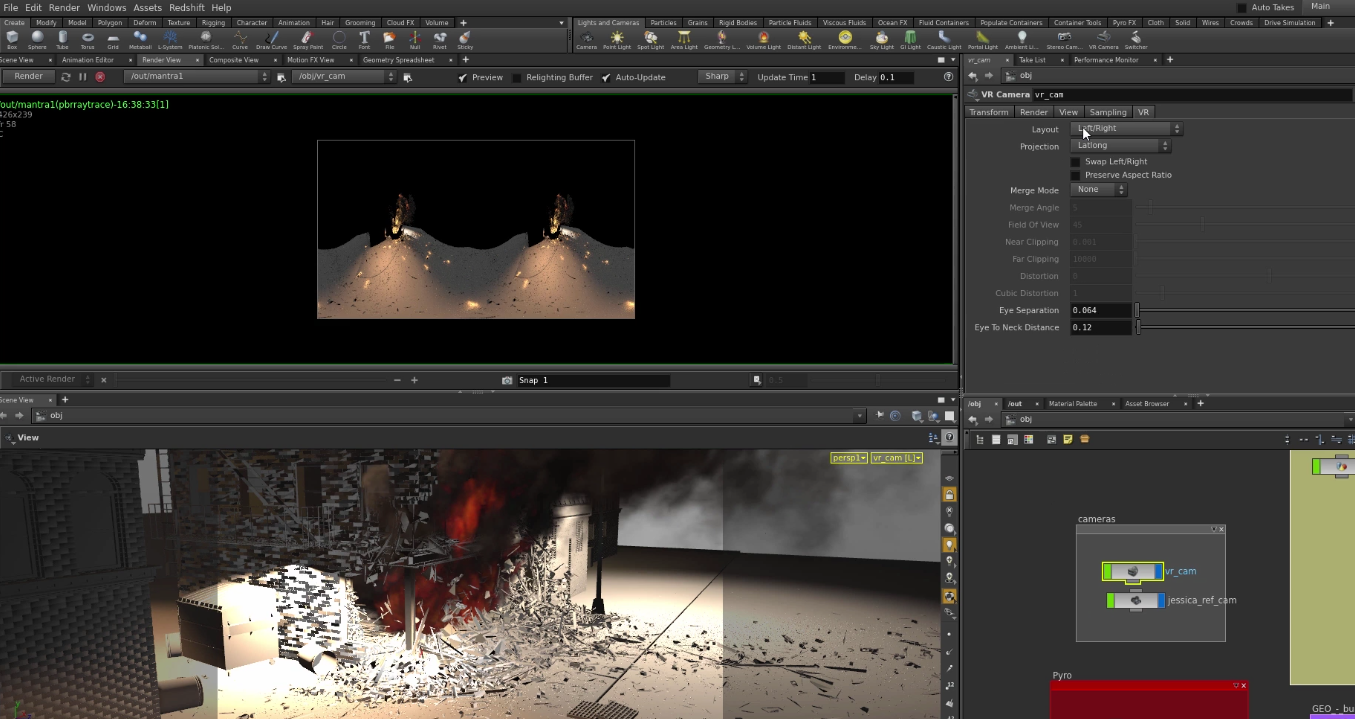
You tin also place stereo cameras to render left and right eye for a stereo 3D effect. The stereo cameras tin can be used for Anaglyph 3D images as explained on the help folio.
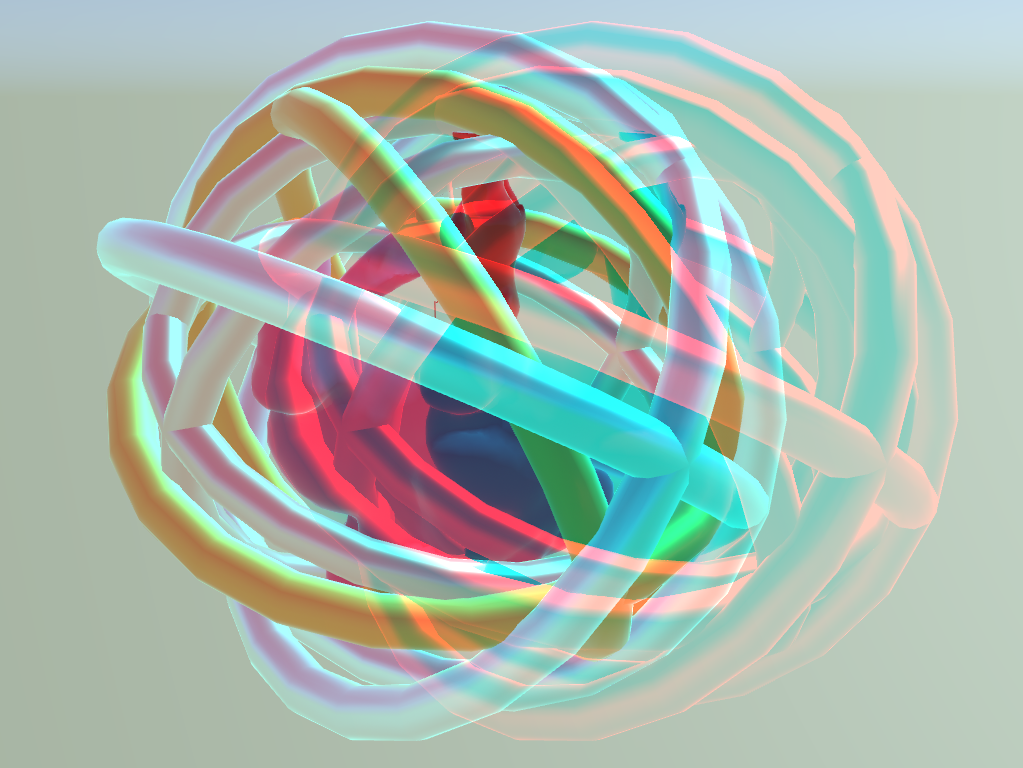
Source: http://wordpress.discretization.de/houdini/home/advanced-2/exporting-a-video/
Posted by: mercerciat1967.blogspot.com


0 Response to "How Do You Export Animation Redshift Maya"
Post a Comment